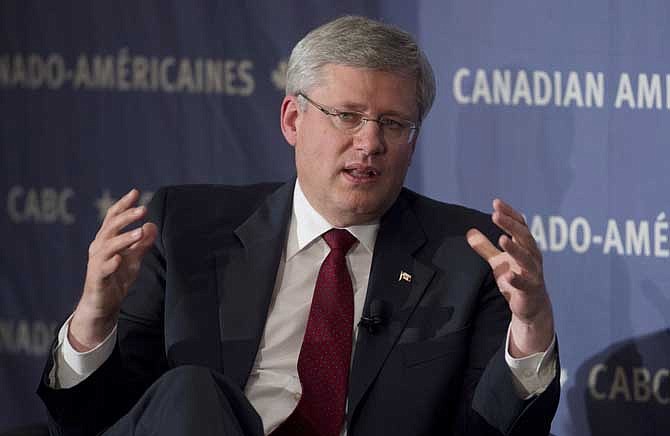TORONTO (AP) - Canada's prime minister said Thursday he "won't take no for an answer" if the Obama administration rejects the controversial Keystone XL pipeline to the U.S. Gulf Coast.
Prime Minister Stephen Harper addressed the Keystone XL project, a flashpoint in the debate over climate change, during a visit to New York City. The long-delayed project carrying oil from Canada's oil sands to Texas Gulf Coast refineries needs approval from the U.S. State Department, and Harper's remarks are some of his strongest to date.
"My view is that you don't take no for an answer," Harper said. "We haven't had that but if we were to get that it won't be final. This won't be final until it's approved and we will keep pushing forward."
Harper, who made the remarks at a Canadian American Business Council event, said he's been in regular contact with President Barack Obama. Harper said it will create 40,000 jobs in the U.S.
"The logic behind this project is simply overwhelming," the prime minister said.
Harper said politics has cast doubt on whether the pipeline will be approved but said he's optimistic it will be approved.
"Ultimately, over time, bad politics make bad policy," he said. "The president has always assured me that he will a make decision that's in what he believes is in the best interests of the United States based on the facts. I think the facts are clear."
The Obama administration is considering whether to approve the pipeline, which would carry 800,000 barrels of oil a day from Alberta across six U.S. states to the Texas Gulf Coast. A decision late this year or early next year.
Republicans, and business and labor groups, have urged the Obama administration to approve the pipeline as a source of much-needed jobs and a step toward North American energy independence. Environmental groups have been pressuring President Barack Obama to reject the pipeline, saying it would carry "dirty oil" that contributes to global warming. They also worry about a spill.
Obama's initial rejection of the pipeline last year went over badly in Canada, which relies on the U.S. for 97 percent of its energy exports.
The pipeline is critical to Canada, which needs infrastructure in place to export its growing oil sands production. The northern Alberta region has the world's third largest oil reserves, with 170 billion barrels of proven reserves.

